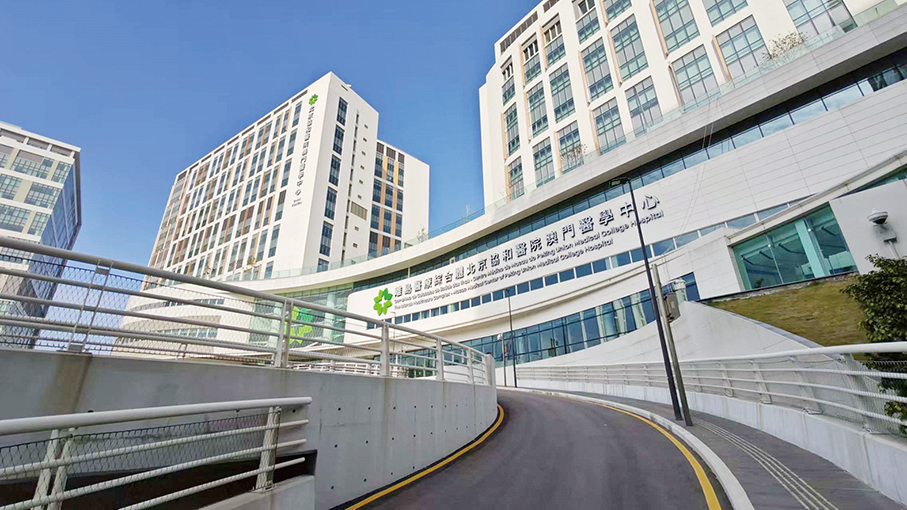Déjà vu!
The West’s ill-advised “overcapacity” narrative is rearing its ugly head again, this time targeting China.
Just a few decades ago it was aimed at Japan. “Japan bashing” was all the rage in the 1980s as the island nation was perceived by many in the US as a threat to its economy. In 1987 several members of Congress, histrionically swinging sledgehammers, demolished a Toshiba radio on the Capitol, acting out their anger at claims that a subsidiary of the Japanese electronics conglomerate had joined a Norwegian company to sell submarine technology to the Soviet Union.
Typically, no such theatrical protest targeted Norwegian products…
The protest took place at a time when many in the West, politicians in particular, feared that Japan was going to take over the world by replacing the US as the planet’s biggest economy.
Of course, it was nothing but sheer mass delusion, similar to the “Yellow Peril” hysterics that emerged in the late 19th century in response to Chinese labourers arriving in North America who were willing to work harder but for lower wages than their white counterparts.
As with China today, US political scientist John Mueller points out in an article published last December*, angst about Japanese economic growth and business practices was intense and widespread in the West, in the US in particular, in the 1980s. In his analysis, Mueller quotes US political scientist Samuel Huntington (1927-2008) by claiming at that time that “economics is the continuation of war by other means” – a variation of German military theorist Carl von Clausewitz’s (1780-1831) famed aphorism that “war is the continuation of policy with other means” (often misquoted as “…by other means”).
Back in the 1980s, Donald Trump (no introduction needed nowadays) was among the Japan bashers when he claimed that “first they [the Japanese] take all our money with their consumer goods, then they put it back in buying all of Manhattan”.
Well, they didn’t, and the Japan bashing petered out in the early 1990s when the Japanese economy started to languish and the one of the US surged.
Less than a decade ago, Trump, when running for president, dumped Japan as the target of his country bashing by claiming that “we can’t allow China to rape our country...”.
US economist and public policy analyst Jeffrey D. Sachs says in an article published last December, headlined “US badmouthing of more competitive China [is] impudent”**, that “the latest campaign of the United States against China is the charge that the Asian country has excess capacity in a range of manufactured goods and so should restrain its exports.”
‘The truth is simpler’
I concur with his view that “the truth is simpler. China and other East Asian countries are the low-cost producers of a range of high-quality industrial products that the world urgently needs: Solar modules, electric vehicles, wind turbines, efficient batteries, 5G and more. Since the US lags behind China in these sectors, Washington is badmouthing it, characterising China’s success as some kind of bad behaviour.”
Sachs adds that “the US approach to China is based on a mix of arrogance, nastiness and naïveté.”
A toxic cocktail indeed.
The Columbia University professor also underlines that the “US wants Europe to also partly close its markets to China’s goods.”
How the EU responds to this remains to be seen, depending on the outcome of the June 9 European Parliament (EP) elections that will determine the composition of the 27-nation bloc’s executive commission, which currently is headed by Ursula von der Leyen. She is running for re-election and seems to have Washington’s ear as far as the West’s politico-economic relations with Beijing are concerned.
Von der Leyen has echoed US Treasury Secretary Janet Yellen’s repeated claims about China’s alleged “overcapacity”. Considering that both studied Economics, I am puzzled that they are harping on and on about the “overcapacity” claim vis-à-vis China. As trained economists, they should know better. But, of course, both are also senior politicians. However that may be, I am quite disappointed with their obviously politically motivated “China’s overcapacity” narrative.
President Xi Jinping told her and French President Emmanuel Macron in a joint meeting in Paris on May 6 that there is no such thing as “China’s overcapacity problem”. Xi said he hoped that the EU institutions develop the right perception of China and adopt a positive China policy.
Anyone even with just a modicum of knowledge about economics should know that overcapacity, i.e., too many products – and too much production capacity – looking for too few buyers – is an age-old phenomenon studied by economists as different in their analyses as Karl Marx and Adam Smith.
Harvard Business School editor Garry Emmons pointed out in a markedly didactical article published back in 1999, headlined “Too Much of a Good Thing?”,*** that “overcapacity per se isn’t necessarily bad. With excess supply, prices go down; that’s good for those industries benefitting from low-priced materials or commodities.
“In addition, overcapacity often springs from innovation – and an improved product muscles into the market alongside previous versions, now rendered passé.”
In the eye of the beholder
Emmons reaffirmed something that I learnt back in the 1970s in my Political Economy class: “Excess capacity is often in the eye of the beholder.”
Yes, that is what it is. Overcapacity – and undercapacity for that matter – are normal – and rather subjective – phenomena in the commercial arena.
Huge economies such as the US, China, Germany and Japan are tackling the phenomenon all the time on an entrepreneurial level. Thanks to their “overcapacity” those four countries are able to supply the rest of the world with a wide range of goods that much smaller economies are not able or willing to produce and export.
Brussels-based Chinese diplomat Gang Peng struck a chord with me when I read his recent article, headlined “The flawed logic behind the so-called ‘overcapacity’ of China’s new energy sector”****, in which he reaffirms that “overcapacity is a comparative concept”.
Hard work & market competition
Gang, who is a minister for economic and trade affairs at China’s mission to the EU, writes that, firstly, overcapacity “shouldn’t be measured solely by production capacity itself or the supply, but rather by the actual demand.
“Secondly, overcapacity should be assessed by the capacity utilisation rate of an industry to see if there is a significant amount of idle capacity.
“Thirdly…China’s new energy competitiveness is not obtained by subsidies, but achieved by enterprises’ long-term technological innovation, hard work and market competition.”
Gang underlines that in 2023, the production and sales of new energy vehicles (NEVs) in China reached 9.587 million and 9.495 million units respectively, basically striking a balance between production and sales, of which domestic sales accounted for 87.3 percent and foreign exports accounted for only 12.7 percent.
Gang notes that China’s NEVs are popular with both European and global consumers, “which is hard-won by high quality and brand reputation, rather than so-called low-price dumping”.
I share his viewpoint that new energy is the common future for humanity and that, “at present, the global new energy capacity is far from enough and still needs to be significantly improved. There is no such overcapacity at all.”
I hope that von der Leyen and Yellen have found time to read his article.
The West’s “Chinese overcapacity” comes hard on the heels of the West’s “decoupling” and “de-risking” strategy that both have failed to gain traction. I am convinced that the “overcapacity” claim is essentially the West’s response to its failures on the NEV development front. The US has responded by imposing sky-high tariffs on imports of NEVs and other products from China.
I find it puzzling that products aiming to help the world tackle its climate crisis are now subject to enormous customs duties. It makes no sense. Interestingly, top executives of the German automobile industry, which is vital to keep Europe’s economic powerhouse running, have come out against the tariffs – and so have German chancellor Olaf Scholz and Sweden’s Prime Minister Ulf Kristersson. Both did what I expect from the head of state or government of any country: to defend the national interest. Incidentally, according to Germany’s Constitution, the Basic Law, it is the chancellor’s duty to protect the German people from harm.
Misguided tariffs
An article by the Editorial Board of the Financial Times, published last week***** and headlined “A misguided move on Chinese tariffs”, cited by Joerg Wuttke on LinkedIn, president emeritus of the EU Chamber of Commerce in China, expresses the view that the Biden administration’s 100 percent levy on electric vehicles (EVs) carries more bark than bite, since the US imports just 2 percent of its EVs from China. It also says that in the long run, the tariff hike insulates US industry from competition, stymying innovation and raising costs for consumers. It concludes that Biden’s tariff move is mostly about optics, targeted at appeasing voters in industrial heartlands including the swing states of Pennsylvania and Michigan.
According to the FT article, the measures risk turning the US presidential election campaign into a bidding war on China hawkishness, which Trump has made his own.
Be that as it may, one can only hope that the Biden-Trump election campaign, which one can expect to become a mudslinging battle, will not result in further anti-China measures by the US.
US-China ties are the world’s most important bilateral relationship – politically, economically and militarily – and the world as a whole, which tries to deal with the climate crisis, military conflict, poverty and a whole raft of other quandaries, can’t afford a further deterioration in Beijing-Washington relations.
The Five Principles of Peaceful Co-Existence –mutual respect for sovereignty and territorial integrity, mutual non-aggression, non- interference in each other’s internal affairs, equality and mutual benefit, and peaceful coexistence – will celebrate their 70th anniversary next month. Even after seven decades, they still offer the right framework for a win-win relationship between Beijing and Washington.
Last November’s meeting between Xi and Biden has resulted in the San Francisco Vision (SFV) aiming to chart the direction for the healthy, stable and sustainable growth of China-US relations.
The clearly misguided “Chinese overcapacity” narrative and Washington’s steep tariff hikes on China-made, eco-friendly NEVs and other products are incompatible with the SFV.
– Harald Brüning
*Remember when Japan was going to take over the world? https://responsiblestatecraft.org/us-china-relations-2666818984/
**https://www.monitor.co.ug/uganda/oped/commentary/sachs-us-badmouthing-of-more-competitive-china-imprudent-4596056
***https://www.alumni.hbs.edu/stories/Pages/story-bulletin.aspx?num=5416
**** https://euobserver.com/stakeholders/ar83ca40c3
***** https://www.ft.com/content/56685c0b-1bdd-43a5-b039-7bb2cb7c7f87








